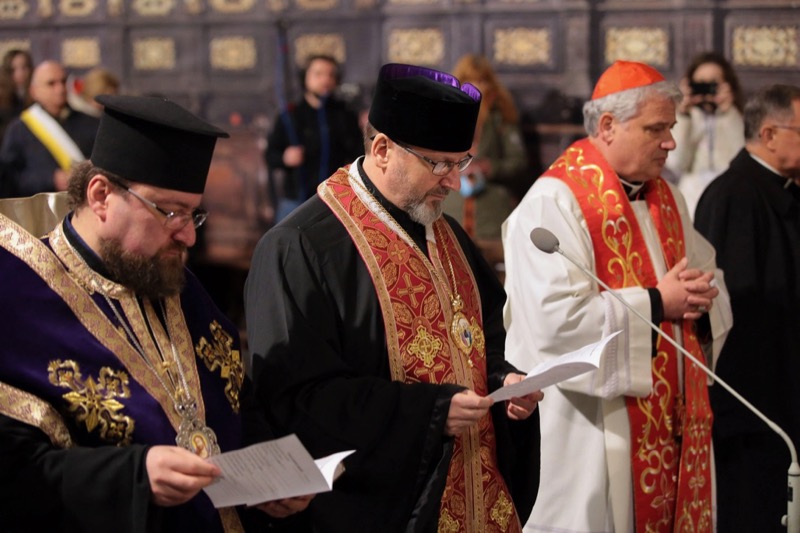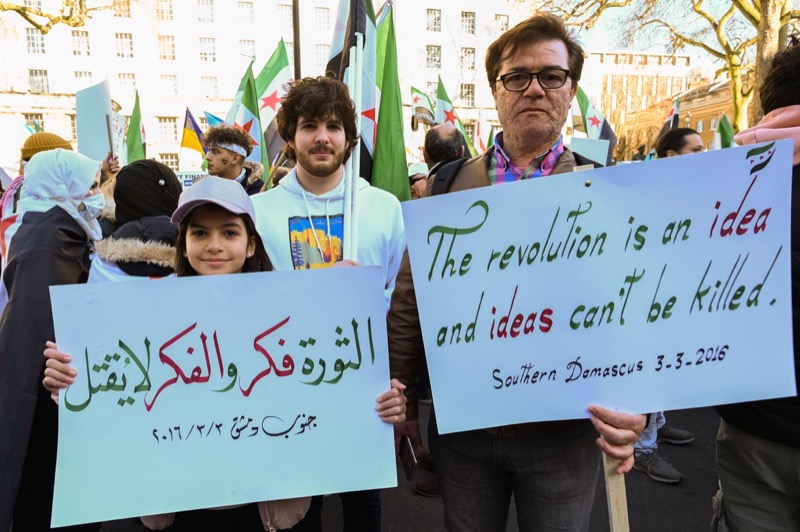In a long article in the German weekly Die Zeit, Archbishop Georg Ga¨nswein, Pope Emeritus Benedict XVI’s private secretary, has again defended Benedict against accusations of hushing up abuse made in the report released in January on abuse in the Archdiocese of Munich between 1945 and 2019, (writes Christa Pongratz-Lippitt). Archbishop Ga¨nswein accused the authors of the report, the Munich lawyers’ firm of Westpfahl Spilker Wastl (WSW), of “sloppy methods”. Many of the questions he said were “imprecise and downright suggestive and there was no differentiation between claims, assertions and facts. In short, there was more insinuation than objective questioning.” On accusations that Benedict had hushed up abuse “not a single accusation withstood careful examination of the material”. He recalled that in his letter of 8 February, Benedict had “clearly and precisely” stated that he took full responsibility for mistakes he had made in the various offices he had held. “He openly admits that he made mistakes and asks for forgiveness. I know that his words came from the heart.” Asked again whether Benedict – then Archbishop Joseph Ratzinger of Munich – knew that at the archdiocesan meeting on 15 January 1980 he had “helped move an alleged abuse perpetrator”, Archbishop Ga¨nswein said: “Fr. X [Peter Hullermann who repeatedly abused minors] was not moved anywhere and certainly not by Joseph Ratzinger. At the time, the Archdiocese of Munich was merely asked if a young priest could be put up in a Munich parish so that he could receive a course of psychotherapy. Those at the meeting decided that he could. Archbishop Ratzinger did not know that the priest was an alleged perpetrator.”
The apostolic nuncio to Syria fears that the Syrian conflict, raging for over a decade, has been largely forgotten. Cardinal Mario Zenari said on 16 March it was, “sad to see in Ukraine the same harrowing images of pain seen in Syria: homes destroyed, deaths, millions of refugees, the use of unconventional weapons such as cluster bombs, the bombing of hospitals and schools.” Cardinal Zenari said the 11th anniversary of the war was “a sad anniversary, first of all, because the war is not over yet and also because Syria seems to have disappeared from the media radar.”
“We are deeply concerned about the armed conflict that is currently taking place in northern Casamance”, the Rome-based Christian community of Sant’Egidio said. The community, which has mediated for peace between the government and rebel forces, “calls for an end to the current military operations by the Senegalese army in order to ensure the stability of the affected region and to keep the path of dialogue open”. A “low-intensity” civil war has been blighting the Casamance region of southern Senegal since 1982. The community wants to continue involvement in the negotiation process.
Three fellow bishops have visited Bishop Jaime Cristóbal Abril González of Arauca, Colombia, to express solidarity with him and the whole community affected by violence. Bishop González recently denounced the resumption of armed clashes between rebel groups in Arauca which has led to selective killings, especially of young people, forced displacements of entire families, threats to leaders, attacks with explosives, and car torchings. The bishops visited shelters for displaced people managed by the diocese. Bishop González felt the bishops’ visit highlighted “an appeal to violent organisations to cease their actions and seek ways of reconciliation and peace.”
The Indian government’s denial of deaths due to the hazardous practice of manual scavenging has been challenged by a leading Dalit Christian activist. The priest secretary of the Indian Catholic bishops' commission for tribal affairs, Fr Nicholas Barla, said last week that, “manual scavenging is the biggest insult to a human being we can think of,” and he reported that at least 45 people died in 2021 while clearing human and other waste from sewers and septic tanks. Dalit rights organisations report that the degrading and hazardous practice has been outlawed, yet more than 1.3 million Dalits, mostly women, are compelled by their low caste status to continue doing it to earn a living.
Pakistan’s bishops have appealed for dialogue to reduce political tensions as Prime Minister Imran Khan's government faces a no-confidence vote sought by the opposition. In a 16 March statement, the bishops appealed to the political leadership, “to ensure that the political temperature of the country is defused and to work together for the peace, harmony and progress of the country.” Opposition politicians have been angered by recent arrests of their members and verbal abuse during live television debates.
A lay Catholic group in the Philippines last week accused President Rodrigo Duterte of failing to ensure clean and honest presidential elections, saying there is evidence of vote buying in the lead up to the 9 May poll. Catholic Voters’ Group alleged lead presidential candidate Ferdinand Bongbong Marcos Jr. and Duterte’s daughter Sara were caught acting fraudulently in this contect. The group is a coalition of lay basic ecclesial communities.
The former Catholic Archbishop of Abuja, Nigeria, Cardinal John Onaiyekan, has said that only a hard-working leader should have the title of “Emeritus” affixed to his name. Speaking last week on the 75th birthday of the Catholic Bishop of Warri Diocese, Dr John Okeoghene Afareha, he said he welcomed him to the club of the Emeritus Bishops. Yet, he added that not every leader merits or deserves the title Emeritus. Cardinal Onaiyekan said that it is only for those who have worked hard and had a significant influence on society.
The Los Angeles Religious Congress, once the largest such annual Catholic gathering in the United States, drawing as many as 40,000 people, conducted a hybrid event this year, with approximately 3,500 in-person participants and others joining via livestream. Pope Francis sent a video message in which he reflected on the challenges posed by the pandemic. “The coronavirus continues to cause social separation and, sadly, the loss of life for many people, and this generates a social crisis. Our hope — we are believers — is placed in the Lord!” Francis told the gathering. Other speakers included Sr Norma Pimental, who directs Catholic Charities along the border with Mexico in Texas, Bishop Robert Barron, an expert in apologetics, and Fr Greg Boyle, who works with inner city youth.
Catholic leaders urged candidates for Timor-Leste’s 19 March presidential elections to avoid politicising the Church and using religious symbols or attributes during the campaign. “The Catholic Church has not endorsed any particular candidate from among the 16 candidates contesting the March 19 election,” said Salesian Archbishop Virgílio do Carmo da Silva of Dili. “They are all Timorese, they are Timorese citizens and Catholics, and that is why the Church does not take sides and support certain candidates.” As none of the presidential nominees obtained at least 50 per cent of the votes, a second round is scheduled to be held on 19 April 2022, for the two candidates who obtained the most votes. Provisional results indicate that the runoff will be between former president Jose Ramos-Horta and incumbent Francisco Guterres.
An Indonesian government minister has told the country’s Catholic bishops that the government is counting on the Church to promote inter-religious harmony. Speaking at a recent seminar organised by the Bishops’ Commission for Interreligious Dialogue, the Indonesian Minister for Religious Affairs, Yaqut Cholil Qoumas, reiterated the government's commitment to strengthen peaceful coexistence among citizens of different religious affiliation. Minister Qoumas expressed his desire to invite both Pope Francis and the Sheikh of Al-Azhar, Ahmed Al-Tayeb, to visit Indonesia, to promote harmony between Christians and Muslims.
The process of canonisation of Iraqi martyrs, including Chaldean Archbishop Paulos Faraj Rahho, is proceeding “smoothly”, according to Iraqi Cardinal Louis Raphael Sako. Speaking on 14 March, during a homily in the Patriarchate's chapel in Baghdad on the 14th anniversary of Archbishop Rahho's death, he said the martyrs’ stories have paralleled the recent journey of the indigenous Christian communities of Mesopotamia. Paulos Rahho, then Archbishop of Mosul, was kidnapped and killed in 2008. Among the other martyrs was Sr Cecilia Moshi Hanna, who was killed in Baghdad in 2002.



 Loading ...
Loading ...